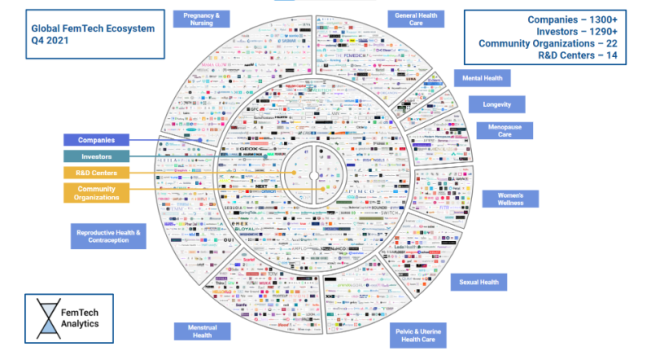The UAE is entering a significant new wave of healthcare for women, driven by greater awareness and openness about female health topics, changing perceptions about women’s health issues, market accessibility for female founders and a number of FemTech projects set to launch in 2022 and beyond, according to the latest 2021 Global FemTech Industry report
According to the report, the US continues to dominate the FemTech market with more than 50% of FemTech companies globally, followed by Europe (25%) and Asia (9%). The UK and Israel boast the highest number of FemTech companies in their respective regions with 10% and 6% of the total number of businesses, while Asia's undisputed market leader is India with 4% of FemTech companies.
“Over the past few years, we have witnessed a steep rise in FemTech solutions due to the adoption of new technologies and new business models, transforming the way women access healthcare,” said Kate Batz, director of FemTech Analytics.
The UAE is well-positioned to achieve exponential growth within the FemTech industry, considering the array of existing startups providing feminine hygiene products and educational tools such as Pectiv, Orgabliss, MyLily and LiZZOM, and the several more expected to arise over the coming few years.
E-commerce platforms focused on women’s healthcare represent a key driver of the UAE’s FemTech sector. Digital platforms in the Pregnancy & Nursing sub sector offering consumer products for mums-to-be, new mums and kids to enjoy motherhood journey include Mama's Box, Mumzworld and BabySouk.com.
Additional findings:
● Around 85% of all FemTech companies generate annual revenues of less than US$10mn each.
● The FemTech companies that raised the highest amount of funds are Evofem (US$444.2mn in Post-IPO Equity), Progenity (US$248.5mn in Post-IPO Equity), Agile Therapeutics (US$204.5mn in Post-IPO Equity), Elvie (US$151.9mn in Series C round) and The Mom Project (US$115mn in Series C round).
● More than 50% of FemTech companies operate in the areas of pregnancy and nursing, reproductive health and contraception and general healthcare. Companies providing pregnancy and nursing solutions such as Baymatob and Expectful make 21% of the market, the ones operating in reproductive health and contraception like Carrot and Phexxi, and general healthcare like Syantra and Tia account for 17% and 14% respectively.







